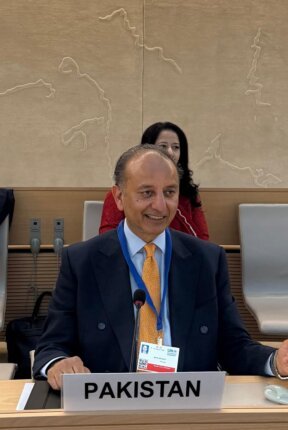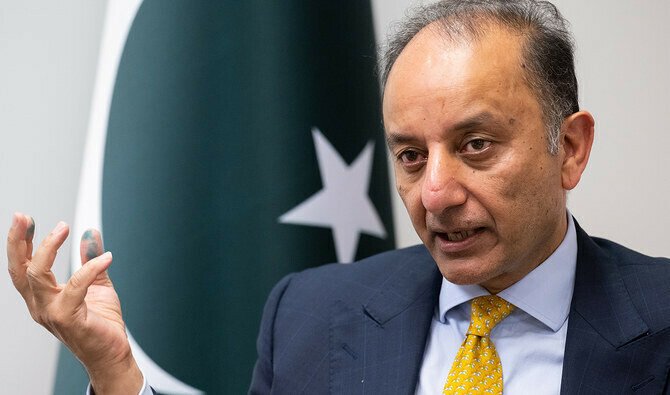Geneva – Pakistan has taken a bold stance at the UN’s latest round of global plastics negotiations, with Federal Minister for Climate Change Dr. Musadik Malik telling delegates that the Global South should no longer carry the burden of a crisis it did not cause.
Addressing ministers and negotiators at the Fifth Session of the Intergovernmental Negotiating Committee on Plastic Pollution (INC-5.2), Dr. Malik highlighted a stark reality — wealthy nations use up to 20 times more plastic than developing countries but still ship their waste to them, often under the false label of “recyclables.”

In Western Europe, the average person uses 150 kilograms of plastic a year. In Pakistan, the figure is just 7 kilograms, while India consumes 8, Bangladesh 6, and several African nations between 5 and 6. Despite their low consumption, these countries receive imported plastic waste that ends up dumped, burned, or swept into waterways, with devastating impacts on health, ecosystems, and economies.
“Our people are paying the price for a problem they did not create,” Dr. Malik said. “This is not just about pollution — it’s about fairness, sovereignty, and justice.”
To change this, Malik proposed a two-pronged approach under the Global Plastic Treaty:
-
Extended Consumer Responsibility – holding high-consumption countries accountable by requiring them to pay into a global “Plastic Fund” to finance recycling and waste-management infrastructure in developing nations.
-
Global Plastics Credit Market – a trading system where wealthy countries can purchase credits from developing nations that show measurable progress in recycling and pollution reduction, ensuring funds go toward technology, modern facilities, and fair employment for waste workers.
Dr. Malik stressed that these measures would protect the planet while creating economic opportunities in vulnerable regions. “Pakistan is ready to lead this fight,” he declared, “and to secure a future where our children inherit rivers, air, and land free from the poisons of imported waste.”



